|
|
|
|
A year ago, would any of us have imagined we'd still be dealing with COVID-19 variants that are resulting in travel bans and lockdowns — time and again, even after millions of us have been vaccinated? In March, it will be two years since the World Health Organization declared COVID-19 a pandemic, but I naively believed — or should I say hoped? — that the crisis would come to an end once the majority of the population was vaccinated. Hardly.
The ongoing pandemic had a big impact on my two sections: Politics and Business. It prompted Prime Minister Justin Trudeau to call another election when he was riding high in the polls due to his handling of the crisis. Nonetheless, he was handed yet another minority and the political map barely changed. On the business and economics front, organizations large and small are still grappling with vaccine mandates, work-from-home strategies, the so-called Great Resignation and now the spectre of sky-high inflation.
Through it all, academics at universities across Canada have contributed insightful, smart analyses to The Conversation Canada on a wide range of topics, some pandemic-related, some blessedly unrelated to the crisis — but all of them raised awareness of some critically important issues both in Canada and abroad that too often fly under the radar.
In no particular order, here were the Politics and Business stories that really stuck with me long after I finished the edit and hit the publish button.
Politics
Business
-
It was a news story enthralled so many of us this year — the family feud that erupted among the late Ted Rogers' children over the management of his telecommunications behemoth. The saga rivalled the HBO show Succession, prompting Dimitry Anastakis of the University of Toronto to pen a compelling look back at Canada's history of corporate family feuds.
-
Amid the Big Quit/Great Resignation, are toxic managers soon going to be subjected to the #MeToo treatment? Erica Mildner of the University of British Columbia made a convincing case that bad bosses who create miserable workplaces could be the next to face widespread cancellations.
-
Workplace environments were a big topic of discussion this year as many of us either worked from home happily or pined for a return to the office, so Lisa Cohen of McGill University answered the question: What if your dream job turns out to be a nightmare?
-
Throughout the pandemic, we heard restaurant owners bemoan the fact that they couldn't fill jobs once COVID-19 restrictions eased. But Bruce McAdams and Rebecca Gordon of the University of Guelph pointed out that far from a labour shortage, restaurant employees were rejecting the poor working conditions that have long been a feature of the industry. The story was one of the most read business stories of the year, and by the end of 2021, the restaurant industry was pledging to do better by its workers.
-
When Canadian David Card won the Nobel Prize in economics, we turned to Arvind Magesan of the University of Calgary for his take on Card's groundbreaking research that determined immigrants do not, in fact, "steal jobs" from native-born workers.
|

|
Lee-Anne Goodman
Politics, Business + Economics Editor
|
|
Year in Review: Politics + Business
|

Vrinda Narain, McGill University
Emboldened by success in Afghanistan, the Taliban is now ordering religious leaders to provide them with lists of girls over the age of 15 to enter into ‘marriages’ to Taliban fighters.
| |
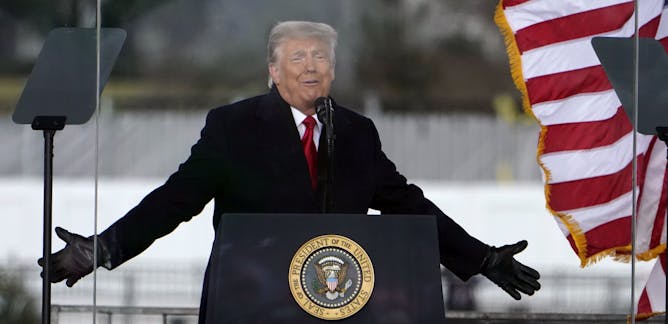
Thomas Klassen, York University, Canada
After blazing an unprecedented post-election path of inciting violence, Donald Trump’s path forward contains some potential landmines.
|
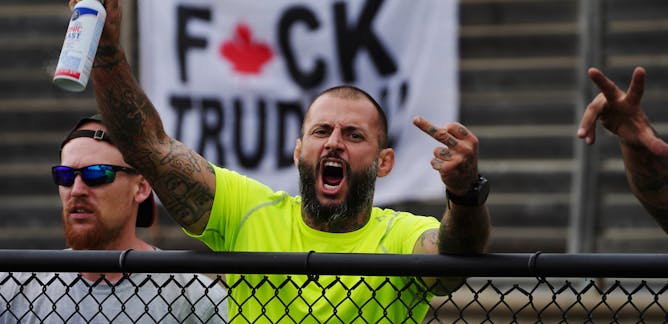
Fenwick McKelvey, Concordia University; Scott DeJong, Concordia University
Justin Trudeau has a reputation as a youthful progressive outside of Canada, but among right-wing Canadians online, he’s despised — and he’s been confronted with hostility on the campaign trail.
| |

Fannie Lafontaine, Université Laval
Ending the Canadian genocide of Indigenous peoples is a legal obligation, requiring honest, active decolonization. The lawyer who wrote the MMIWG’s inquiry’s legal analysis of genocide explains.
|
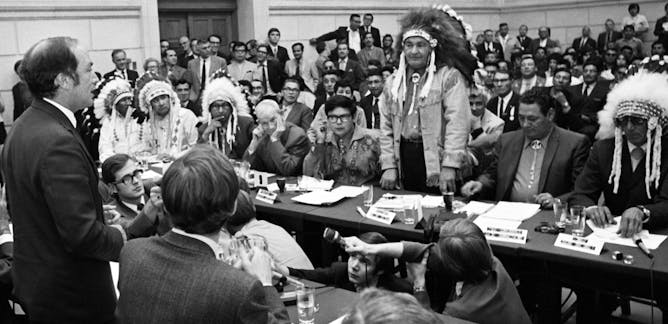
Raymond B. Blake, University of Regina; John Donaldson Whyte, University of Regina
How did a national leader whose animating political spirit was protecting human rights come to adopt a passive acceptance of Canada’s worst face of colonialism?
| |
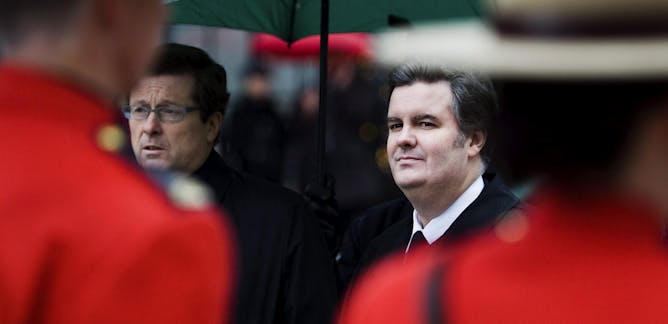
Dimitry Anastakis, University of Toronto
Bitter family feuds and succession battles are not new to Canadian business. In fact, several prominent family-owned firms have had very public brawls. The Rogers feud, though, puts the company at risk.
|

Erica Mildner, University of British Columbia
Could the resignation of Canada’s governor general represent a watershed moment for workers’ rights?
| |

Lisa Cohen, McGill University; Sandra E. Spataro, Northern Kentucky University
So you snagged your dream job. And it quickly became the stuff of nightmares, filled with mundane tasks and drudgery. What can employees and employers do?
|

Bruce McAdams, University of Guelph; Rebecca Gordon, University of Guelph
Should the chronic hiring struggles of Canadian restaurants be referred to as a labour shortage, or can it be more accurately portrayed as a retention issue fuelled by a lack of decent work?
| |
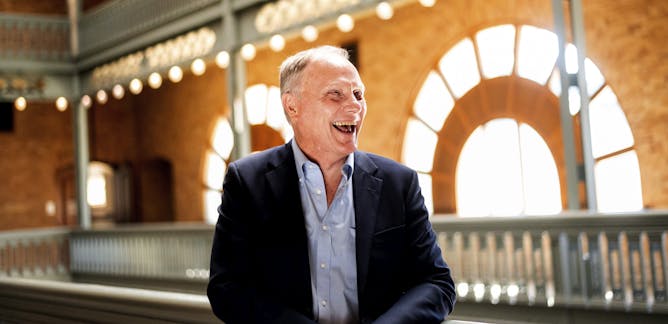
Arvind Magesan, University of Calgary
Canadian economist David Card won the Nobel Prize in economics for demonstrating that large-scale immigration has no effect on the wages of native-born workers. In doing so, he’s challenged Economics 101.
|
|
|
| |
| |
| |
| |
|
|
|
|
|
|
|